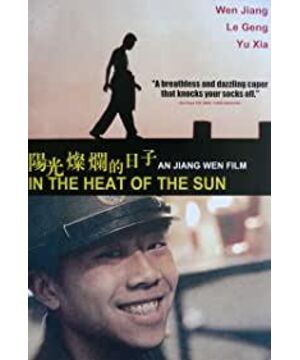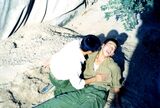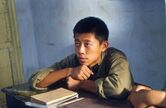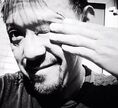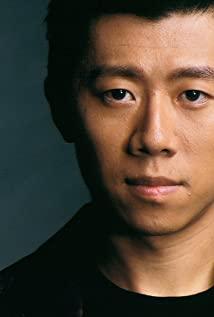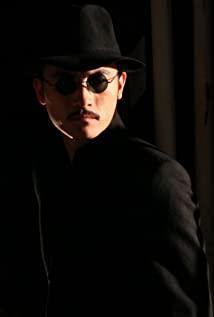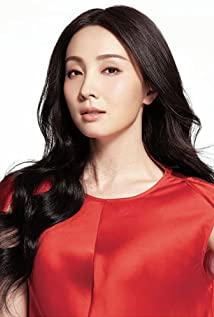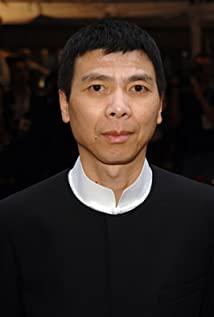- from "Ferocious Animals" to "Sunny Days"
When I read Wang Shuo, I was in the first year of junior high school. Since I was a child, I believed in scientism, and my hobby was reading different versions of "One Hundred Thousand Whys of Primary School Students", inspiring to be a scientist, and studying dinosaur fossils. Naturally, fiction is disdainful, because fiction goes against the spirit of scientific truth-seeking and pragmatism. At that time, the primary school composition question could not escape the category of a meaningful thing, so when the new concept composition was blowing, I found that Han Han was a talent, so I turned around and read the novel. When I was promoted to junior high school, the biggest surprise was to have a building that seemed quite symbolic at the time—the library. Although most of the books in the collection are old — detached covers taped to spines, yellowed and mangled pages, and far-flung records of pen and ink on loan cards in bookbags — and mostly pirated copies. However, the reflection of the sunlight slanting on the pages in the autumn afternoon, together with the long ink fragrance and musty smell emanating from the seams of the book, is still a precious reading experience that I treasure to this day.
In such sunny afternoons, I finished reading Wang Shuo's self-selected works. Years later, most of the plots of the novels that were swallowed whole at that time have been forgotten, and only a few scenes are still visible. For example, Milan, the heroine of "Ferocious Animals", has long forgotten, but she is able to remember "I" in bed, and Yu Beibei said, "You are still young and don't know how to feel." You're going to get married in the future, and be worthy of your future wife -- just touch me. To me, this sentence, both past and present, is like a blow to the head.
Jiang Wen deleted this plot in "Sunny Days", pruning and splicing the clumps of branches on other narrative trunks, while infusing personal life experience. Therefore, rather than saying that this is an adaptation of "Ferocious Animals", Fu Ru said that it is the projection of Jiang Wen's own personal will. The tone of Wang Shuo's novels has always been gray in my reading. Characters are often marginalized in society under the dual-track economic system, with indulgent behavior in life and self-imposed exile in morality. Although the story sometimes has the surprises of that special era, the object itself lacks the ductility and remodeling of the spirit and character. And "Ferocious Animals" focuses on adolescent boys, providing a narrative space to complete the transition from boys to men, which is very precious in Wang Shuo's so-called "ruffian literature". In my opinion, it is the experience of youth that resonates between writers and directors of similar age and origin, which creates a warm yellow tone for "Sunny Days", giving it a youthful and furry texture.
In the opening scene of the movie, Chairman Mao's big hand is far-sighted and he doesn't press it. After the transition shot of throwing schoolbags, Ma Xiaojun, who has grown up, rides his bicycles through the quiet alleys of the summer afternoon, raising a thin layer of dust and doing it excitedly in the sun. Brownian motion. In the memory of urban people in the whole country, the alleys are generally like this, and most of them have maintained their original appearance for 20 years - cement roads, cement walls, lonely cement telephone poles in the corners, and few pedestrians. There should be no small advertisements on the poles. The road should be invisible to garbage (thanks to the underdeveloped economy at that time).
When Ma Xiaojun and the others were riding their bicycles, the fool at the gate of the compound was riding a stick, his eyes were crooked and the corners of his mouth were dripping. Ma Xiaojun called him cheerfully, Gu Lunmu! The idiot replied gruffly, Oppa. Is there an intellectually disabled person around us early on in our life curve? An elementary school classmate had a big black mole on his chin—I dubbed it a sign of evil at the time—and he was half-coerced by the head teacher to go to the hospital to get a mentally handicapped certificate, and since then he has gradually distanced himself from the normal us. Whether a fool often exists and only exists in the early days of our memory - as time goes by, every screening and shuffling of life, those with less intelligence or academic ability will inevitably be eliminated, let alone fools.
In addition to the fool Gu Lunmu, Mr. Hu, played by Feng Xiaogang, is also a masterpiece among Jiang Wen's original characters. When I was in elementary school, the classroom basically maintained the original appearance of the classroom in the mid-1970s in the film: daylight instead of fluorescent lamps was the main source of lighting in the classroom, and the desks and chairs were made of rough logs without veneer, and the surface was inevitably covered with ravines—— A backing plate is a must. The blackboard is made of wood, so there is no harsh scratching sound of a glass blackboard when writing. The pointer is often a broken meter stick, which can be hidden on the upper edge of the blackboard and used for drawing or corporal punishment of students. The combination of chalk tips can be regarded as an accomplice of the authoritarian rule of teachers. Under the shock of violent machines, the rebellious nature of adolescence grows. In the film, the teacher embarrassed the teacher by laughing and peeping at the teacher's urination and trembling. I think every boy who has gone through adolescence feels the same.
Brothers and women, though integral to male-themed films (Once Upon a Time in America and Enemy of the People), should have their origins in adolescence. In my personal life experience, even if parents and school authorities have always been strong against puppy love, the two are often like a fish and a bear's paw in the early days. Unless it's a group of boys who can respond to all kinds of calls and gather in groups of small leaders - mature and brave, and often good-looking - such people do exist at a certain stage of my life, or at a certain stage of my life I live in. in the shadow of others. Therefore, among the group of boys in the film, only Liu Yiku, who has the highest image and symbolizes authority, will always take the girl (also known as "Pai Pozi"), and the others will only be giggling and grandstanding - the so-called difference between the big brother and the little brother. In the rough and heroic friendship between brothers, the emotionally delicate infatuation of the opposite sex will be ridiculed and belittled, so one has to pretend to be indifferent and appear as a conqueror or possessor, and only in this way can one gain the adoration of a brother. Ma Xiaojun's imagination about Milan is the product of the reconciliation of two contradictions: the interlude of Mascari's "Country Knights" reverberates like bathing in the sun, gentle and mellow and slightly sad. The theme of Milan; the background music of brothers gathering or going out to check the frame is vigorous and even soul-stirring revolutionary songs, full of heroism and blood boiling. The two are intertwined into a rooftop chorus play, which culminates in the song "Evening Outside Moscow".
However, Ma Xiaojun's beautiful imagination was quickly overturned by himself. The conflict between the two has inevitably been exposed and even spread. Crude and unreasonable mockery of the opposite sex is just the boy's feeble and clumsy struggle. In the rainy night, Ma Xiaojun, like a wild cat in heat, wanted to vent his primitive instincts, and his shrill cry pierced through the wind and rain into the sky. At dusk, when the sun sets in the west, the figure of Ma Xiaojun wandering around carefully like a wild cat on the roof of the western buildings in Beijing is still in front of him, but at this time it seems like a lifetime. In the end, Ma Xiaojun chose to use physical conquest and occupation and destruction to replace the previously unattainable anxiety about the opposite sex. Under the director's arrangement, it failed.
In the pool, he swam again to his past brother and the woman he once had a crush on, begging for forgiveness and redemption, but was kicked back to the bottom of the pool again and again roughly, until he ran out of energy and gave up, lying in the middle of the water like a floating corpse, with no one around.
No one knows exactly when we became what we are now, as adults toast in stretched luxury cars in high spirits. But for Ma Xiaojun, the transformation from a boy to a man was probably completed in the moment when he experienced ups and downs and finally surfaced.
Ever since I read Wang Shuo, I have been fascinated by Beijing, just as I am obsessed with pursuing the bizarreness of the 1960s and 1970s—the hippie movement bred under the anti-war sentiment in the West, the Beatles and Bob Dylan are in the ascendant, and the Rolling Stones are emerging. , while the mysterious East is collectively engaged in another kind of madness. Although the many constraints and confinement in reality also made me look forward to the unbridled youthful life of Ma Xiaojun, but I know that the same story cannot happen in everyone's green years, such as my parents, who were the same generation as Wang Shuo and Jiang Wen, were hardworking. Simple and self-disciplined living in a small town in the south of the Yangtze River. Freedom in riotous times is so extravagant and far away.
The color tone of the film changed to black and white when the Ma Xiaojuns grew up, which seemed to imply that that period of youth was gone forever. Suddenly, the fool Gu Lunmu appeared in the camera while riding a stick. Ma Xiaojun excitedly waved and shouted, Gu Lunmu, Gu Lunmu. The fool Gu Lunmu dragged his stick and walked like a fly, looked at them with contempt, and said fiercely, fool.
The warm sound and light flowed quietly, and at the end, it made the strongest sound like a long river of frost and cold.
I would like to bless a class I have not yet graded with this article.
View more about In the Heat of the Sun reviews


